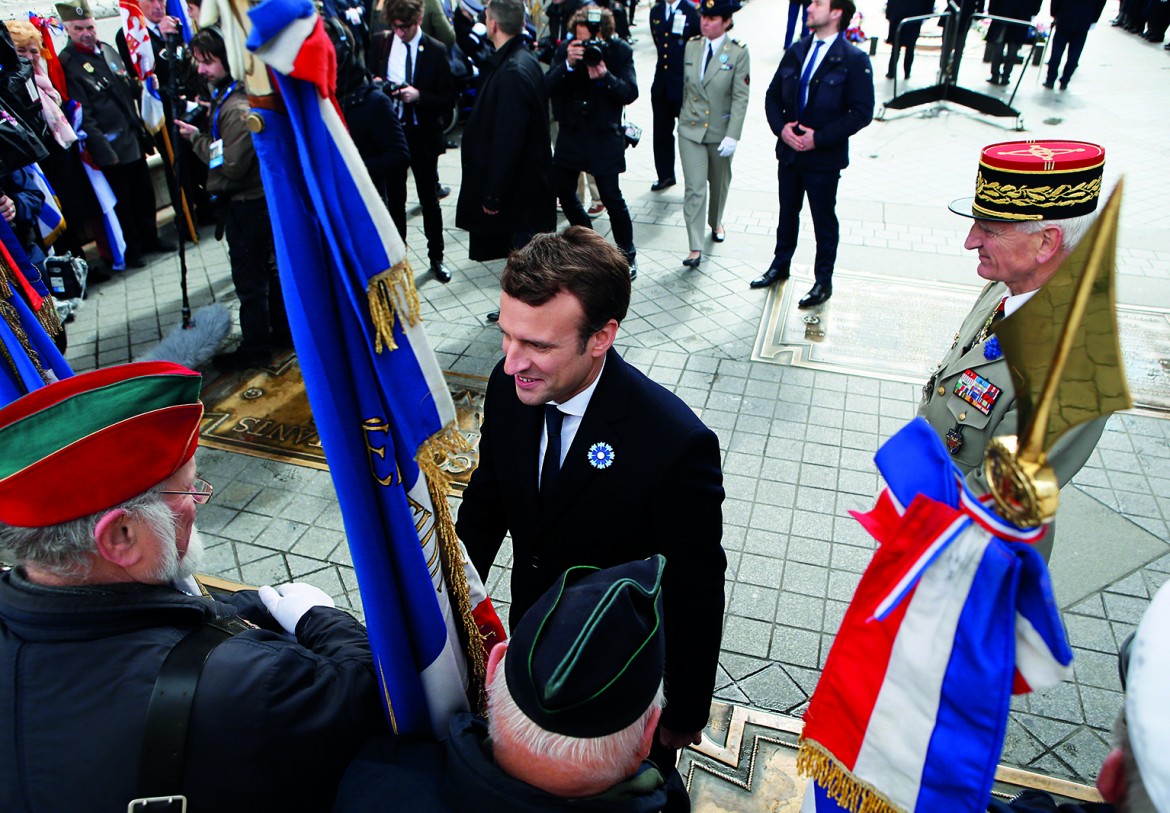Analysis
Macron faces anger from the right — and left
Unless he achieves a spectacular result for his movement, Macron will have to put together a coalition government with the weakened Socialists, while Mélenchon’s left refuses the neoliberal agenda of the new head of state denounced as “the banker.”

Emmanuel Macron won by far: It is less likely that he was able to convince voters. Abstention was around 25 percent (that is one voter in four) the highest level since 1969, in almost half a century of history of the Fifth Republic.
Twelve percent of citizens who went to the polls deposited a white or void card, double the previous record set in 1969, in a run-off between a centrist and a Gaullist candidate while the left was left out.
Despite the fact he earned 66 percent of the valid votes, now the question is how Macron will govern. Contrary to what many think, France has a political system where the president is not the head of government and the prime minister needs a majority in the House. Macron’s party, En Marche!, will have to conquer, together with his allies, at least 289 seats out of the 577 seats on the National Assembly. Not an easy task.
The two-round electoral system in individual constituencies, created by the 1958 Constitution, was designed for the alternation between two large blocks, marginalizing the smaller political forces. This year, however, the big traditional parties (the Gaullists and Socialists) have not even gotten to the second round of the presidential elections. Therefore, in June, each college will see at least five competing candidates: the followers of the new President, the Socialists, the Gaullists, the National Front and the left led by Mélenchon.
Many socialist voters will vote for Macron’s candidates, and many others will remain loyal to their local MP, who in many cases has been representing the district for decades. The other three candidates (Gaullists, National Front and the left) will start at the national level with a very similar popularity level, around 20 percent. It is easy to imagine that in the East and in the South of France, the National Front will be favored; in the West and in big cities, the left will prevail. In many situations, there will be not two, but three candidates in the second round, because the law allows those who have obtained at least the vote of 12.5 percent of eligible voters (15-17 percent of the valid votes) to participate.
This may mean that in half of the colleges, there will be duels among three candidates, with Macron’s candidate fighting for the seat against Mélenchon’s and the Front National’s ones. Or the outgoing Socialist MP will attempt to defend the chair from the assault of the traditional Gaullist enemy, and the National Front’s candidate will be stuck in the position of the third wheel. Even if voters are often sensitive to the need to give the new president “his majority” to govern, the elections in June are truly open to any outcome.
Unless he achieves a spectacular result for his movement, Macron will have to put together a coalition government with the weakened Socialists, while Mélenchon’s left refuses the neoliberal agenda of the new head of state, denounced as “the banker” and “the new monarch,” even before all the votes were counted. Then, there are the Gaullists, divided between a wing of hard-liners already thinking of a vengeful comeback in the 2022 elections, and a wing of opportunist and collaborative politicians, leaning toward a grand, German-style coalition.
But in a country where political divisions are centuries old, will the idea of the Grand Coalition gain ground? In Paris, the fractures run deep: Marine Le Pen has just garnered 22 percent of the vote among seniors and not because pensioners can expect something good to Macron. Rather, those born during the Second World War who then fought in the war in Algeria know perfectly that the Front National is the heir of the collaborationists who rounded up Jews on behalf of the Germans, and of the OAS terrorists against the independence of Algeria.
These historical memories have undermined Le Pen’s candidacy: 43 percent of those who voted for Macron, did it to block the road to racism and xenophobia. Only 16 percent voted because they were convinced of his program.
All these factors do not predict an energetic and successful presidency: Macron looks like a less provincial and better counseled version of Renzi, but with an equally weak and fragile consensus. For the French, the disappointment could come quickly.
Originally published at https://ilmanifesto.it/una-resistibile-vittoria-alla-dura-prova-del-governo/ on 2017-05-09
